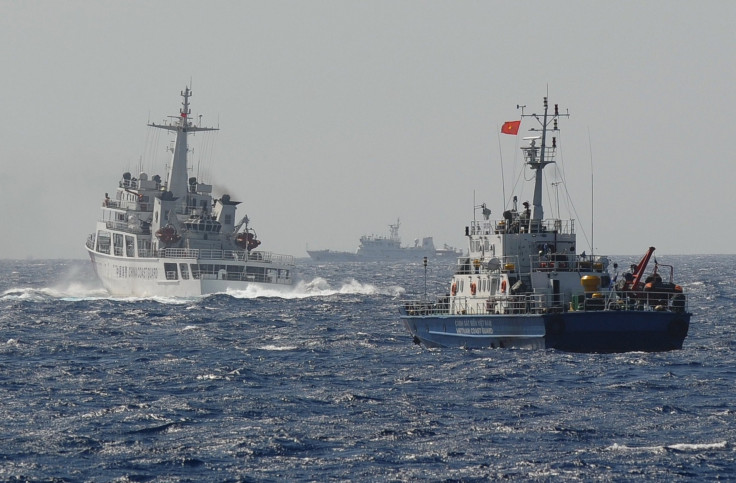South China Sea Dispute: Indonesia Refuses Negotiations, Rejects China's Nine-Dash Line Claims
KEY POINTS
- The Nine-Dash line China uses as a basis for its claims is at odds with Indonesia’s claim that the line lacks an international legal basis
- A June 2 note by China to the U.N. said, “China is willing to settle the overlapping claims through negotiation and consultation with Indonesia...”
- Indonesia too sent a note to the U.N. rejecting China’s claim of historic rights (the Nine-Dash line) in parts of the sea that do overlap Indonesia’s EEZ
China and Indonesia agree on at least one issue about the Natuna Islands, part of the larger Raiu archipelago, located in disputed waters that Indonesia has renamed the North Natuna Sea.
On May 26, Indonesia said in a diplomatic note it is not a party to the territorial dispute in the South China Sea. Beijing responded by also sending a diplomatic note June 2 agreeing there is no territorial dispute between China and Indonesia in the South China Sea.
But once again, the oft mentioned Nine-Dash line that China uses as a basis for its claims in the waters is at odds with Indonesia’s claim that the line lacks an international legal basis.
What they formally disagree on was stated by China in its June 2 note that said, “However, China and Indonesia have overlapping claims on maritime rights and interests in some parts of the South China Sea. China is willing to settle the overlapping claims through negotiation and consultation with Indonesia and work together with Indonesia to maintain peace and stability in the South China Sea.”
That note to United Nations Secretary-General António Guterres prompted another correspondence from Indonesia to the U.N. on June 12, which was in the form of a diplomatic letter.
The letter stated features in the Spratly Islands, a chain in the South China Sea, were not entitled to an exclusive economic zone (EEZ) and therefore could not overlap with Indonesia’s EEZ. It also rejected China’s claim of historic rights (the Nine-Dash line) in parts of the sea that do overlap Indonesia’s EEZ and said even if any such rights existed, they had been superseded by provisions in United Nations Convention on the Law of the Sea, or UNCLOS, made in 1982.
Several experts commented:
- Indonesian Minister of Foreign Affairs Retno Marsudi, during a Thursday press conference in Jakarta, referred to UNCLOS and said, “Indonesia’s position is very clear that … based on UNCLOS 1982 there are no overlapping claims with China. Therefore, there is no reason to negotiate.”
- Teuku Rezasyah, an international relations expert and a scholar from the University of Padjajaran in Bandung city, told Channel News Asian (CNA), “I think Indonesia is quite confident in stating its position to the UN … This is the peaceful way of expressing concern, this is a diplomatic way of Indonesia’s positioning. Secondly, Indonesia needs to inform China that it is consistent … And to show its consistency, it is dealing with this issue on various levels, at the unilateral level, at the bilateral level, regional level, and also global level. I think it’s about time for China to see how serious Indonesia is with its position. It has been doing that by integrating a seaport and airport in the Natuna, and it has redesigned its harbor there.”
- Another opinion was offered by security and defense analyst Yohanes Sulaiman, also speaking with CNA, who said, “I think it would make China think twice if Southeast Asian countries are united. And that is also the main reason why China always keeps claiming that any problem with the South China Sea should be solved bilaterally and not multilaterally. Because they don’t want the Southeast Asian countries to unite to challenge it.” Sulaiman is with the University of Jenderal Achmad Yani in West Java.
The Philippines, Malaysia, Brunei, and Vietnam, and Taiwan, all have competing claims in the South China Sea that conflict with China’s Nine-Dash line.

© Copyright IBTimes 2024. All rights reserved.





















